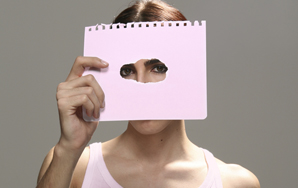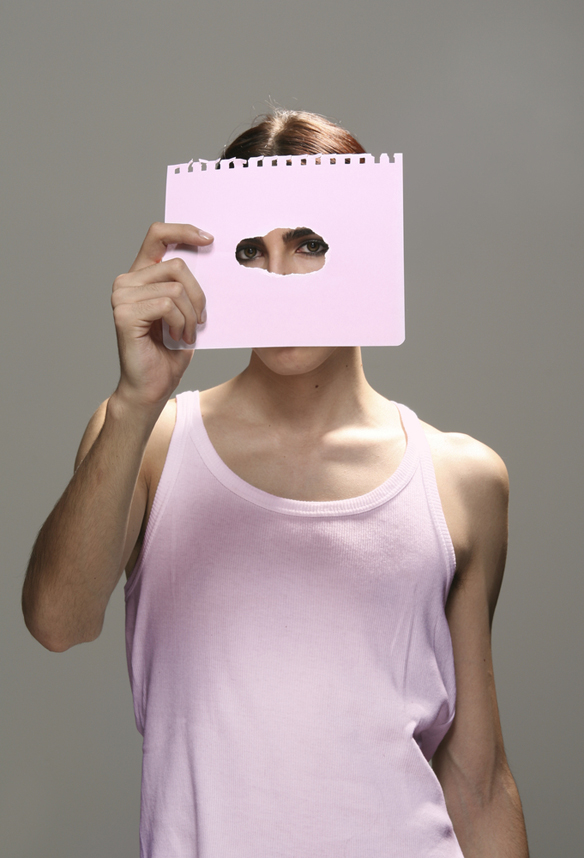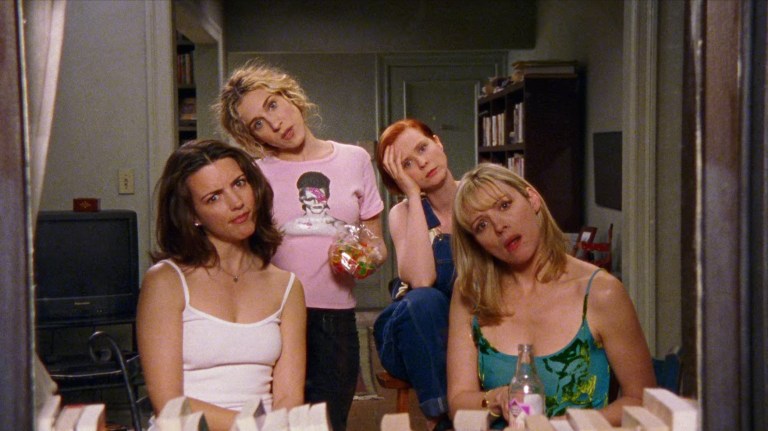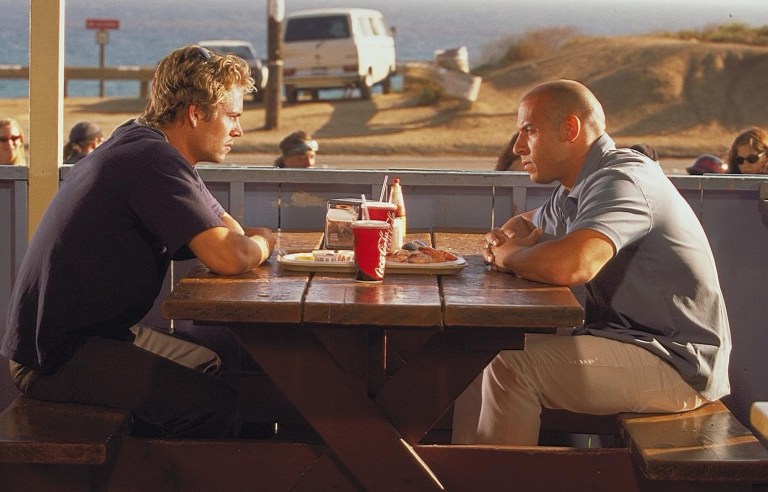
Things I’ve Learned From Writing Under A Gender-Neutral Name
When someone wants to tear apart my writing -- because I had the gall to suggest that society is racist or sexist -- they often bring up my presumed gender to do so. I’m interpellated as “that girl,” “a chick on the internet."
By ![]() Nico Lang
Nico Lang

When you write on the internet a lot, you tend to notice patterns in your feedback and what pushes peoples’ buttons. If I plan to write about race, gender or rape culture, I have to mentally gear up for the blowback, and the couple times I wrote about Rihanna (who encompasses all three), I planned to just stay off the internet altogether. Best to just take up croquet that day.
But the comment I get more often than any other is people questioning my gender — which I often don’t make explicit. At first it wasn’t a conscious decision, but as someone who dabbles in dating columns, I noticed that respondents would automatically assume that I was female. They would look at my name, which could go either way on the gender divide, and check the female box every single time. Even in pieces where I did briefly bring up the fact of my assigned sex, the comment board would somehow miss that part. Any fact that didn’t support the discourse of my femaleness would be left out, not part of the dominant narrative of my gender.
I’m going to take a moment to just say it. I’ve been working up to it for a year, scared if you would accept me if I told you, Thought Catalog readers. But I was born a male. Twenty-five years ago I shot out of my mother’s vagina with something that would later look much more like a penis between my legs. As a kid, I had long hair, and people mistook me for being female. As an adult, I have a shaved head, a nose ring, tattoos and a beard, so nobody has that problem anymore — except on the internet. Varying perceptions of my gender don’t bother me, as I don’t see anything wrong with being female. As long as pronouns and genders are invoked with respect, who cares? I’m a myriad being.
On my birthday, I threw a Bridget Jones-themed birthday party, and I planned on going all out. I even got a damn karaoke machine, because if you tell me we’re going to be celebrating Bridget-style, I expect singing. It was a costume party, and I initially planned on going as Colin Firth, so I could wear a reindeer jumper and pretend to be mean to people. However, as the host, I knew that would be shirking my responsibility. Bridget herself needed to come to this party. I would have to bring Bridget Jones realness. Luckily, I had the clothing left over from my ill-fated Halloween costume, where I attempted to be Chloe Sevigny (from the videos) and ended up Very Mary Kate. I just frumped Mary Kate down and threw a Mickey Mouse sweatshirt over it. And then I threw out my bra. Bridget doesn’t need that.
Throughout the night, guests accepted Bridget as a natural consequence of the costume party — and hardly out of the ordinary. Drag was an expected part of social behavior and didn’t violate any expected norms. However, this changed when I had to leave the party in the middle of the night to go let someone in my building. I hopped in the elevator and pressed Ground, daintily tapping my Converse as I waited for the doors to close. I had to share the elevator with two frat-looking guys from my building, and I did the “dude head nod” out of social politeness, intended to make the experience of sharing a small, dark space with two total strangers less awkward. What (s)he said, I know.
The moment the two of them got a look at my face, which still had a beard on it, they started laughing hysterically. Naïve creature that I am, I didn’t understand why at first. Did I have a banana peel on my foot? Was my underwear showing? Had my mascara started to run? I then realized that they were laughing at me because the sight of a “man in a dress” is funny in our culture, even though a woman dressing in male clothing is comically neutral. When Diane Keaton and Coco Chanel embraced menswear, it was a revelation in style. For me to wear a dress was a joke, a debasement of my own masculinity. Because otherwise, who would want to be a woman?
This sort of thing happens to me all the time on the internet. When I’m writing a dating piece, commenters automatically assume that I’m a woman. If I’m writing on the Women’s section on Huffington Post, that makes sense to me—because the title of the section interpellates my gender. However, on Thought Catalog, my columns give the reader no marker by which to assume my gender, yet it’s projected onto my work in telling ways. That readers assume a dating columnist would be female isn’t a shock, because society tells us that women are supposed to be the only ones that obsess over a relationship and analyze everything to death.
Trust me, ladies: guys do it, too. They just don’t talk about it because it’s “not masculine.” They get nervous when you don’t call. They want to know what your text messages mean. When they meet you for the first time and they find themselves liking you, a moment flashes in their mind where they picture themselves married to you. Guys dream about their wedding days, and they want children and a home to ground them. Because it’s America, we like to pretend that every guy is Jim Belushi and every girl is the nag who has to trick him into staying married to them with a three-course meal, fuck-me pumps and fifteen minutes of strictly missionary.
However, that’s not the way it works in this thing we call “real life.” If you’ve ever actually been in a relationship that isn’t a cartoon depiction of what women and men are like, you know that gender norms are more complicated than popular discourse or Steve Harvey give humans credit for. People just like bounded categories, to place us in either/or, masculine/feminine, us/them or familiar/other because it’s simpler. It’s what we know. Thus, when you’re dating someone of the same sex, straights will often ask which person is the “man” and which of you is the “woman”—because it reaffirms gender models they’re already familiar with. It might not be the reality, but it’s a comforting myth.
Gay men get offended by this because a) it assumes heteronormativity and b) if they’re being honest, neither of them want to be the woman. Both of them like being the man.
But this question should be equally insulting to heterosexual couples, as it assumes total masculinity and total femininity. Being the “man” and the “woman” reaffirms limiting power hierarchies that we should be problematizing. We should be challenging what those terms mean and building a society where femininity is seen as strong and positive. We should all want to be the woman. Who wants to live in a society where little girls will grow up being ashamed of their gender and learning to hate other women, in order to externalize their own self-hatred? When we ask women to tear each other down, it’s because we’re asking them to be punished. It’s that Eve bullshit all over again.
As someone with a gender-neutral name, I’ve experienced this first-hand. When someone wants to tear apart my writing — because I had the gall to suggest that society is racist or sexist — they often bring up my presumed gender to do so. I’m interpellated as “that girl,” “a chick on the internet,” “this whore” or just “some c*nt,” and my femaleness is never mentioned with respect. No one ever says, “O’ wise woman, thou hast shown me why fat-shaming is bad form.” They say, “Stop being so easily offended, bitch.” Femaleness is used to discredit me in a way that maleness is not. No one has ever said, “This guy is an asshole” or “Dude doesn’t know what he’s talking about.” Because maleness is our societal default setting, it’s never mentioned.
Interestingly, the only time that my maleness comes into play is when respondents dismiss me because of my perceived sexuality. I interchangeably call myself bi- or pansexual, which really just means that application is open to all (especially Christina Hendricks), but my queerness usually gets coopted by the binary. I’m never silenced for being a “heterosexual male” but a “faggot” — another marker of feminization.
In the feud between Azealia Banks and Perez Hilton, the reason she used that word against him had nothing to do with homophobia, because Banks herself is queer and to suggest otherwise erases her identity. (Frankly, Hilton should have stayed out of it to begin with.) As someone who raps in a male-dominated industry, Banks is forced to out-masculine many of her male counterparts — to be the “top dog” in the room by having the “biggest balls.” By always having to prove she’s one of the guys, Banks is likely experiencing Stockholm Syndrome, when it’s her femme fierceness that’s truly powerful.
To use a term like that against him wasn’t a signifier of his sexuality but his perceived femininity — because the ultimate dig isn’t labeling someone as gay. It’s calling them a girl.
Katy Perry’s music displays the same tendencies. One of the reasons I loathe her is that I find her music a magic combination of sexist and homophobic, and her debut album under the Perry moniker contained tracks like “Hot and Cold” and “Ur So Gay.” The latter was a put-down song where Perry compares her rotten ex to a woman, which is an unfavorable thing. The gay metaphor gives it a putrid veneer of homophobia, but the song is really about his femininity, which is worse than being gay. Similarly, the object of critique in “Hot and Cold” is her beloved’s indecisiveness, a stereotypical female trait. Perry insults him by singing, “You change your mind like a girl changes clothes/You PMS like a bitch I would know.”
Of all things, that album was called One of the Boys.
Perry reminds me of one of those girls who doesn’t like hanging out with other women, so she hangs out with gay men instead — because it’s “like being around girls without having to deal with girls.” Sure, it’s casually homophobic, but it doesn’t come from a place of hating gay people. It’s about hating women.
I see the same tendencies in my father. He doesn’t personally have a problem that I intermittently recreate Samson’s “What What in the Butt” with men of varying ilk. (For my grandma, it’s just so long as they aren’t, you know, black.) It’s that on top of going to football games and being a loyal Cincinnati Reds fan (#socloseguys), I’ve seen every episode of Sex and the City and idolize Tina Fey, who I feel is my soul twin. I just get her. When I went through my first romantic comedy phase, at twelve, I devoured Julia Roberts’ entire catalog—and begged him to take me to see Erin Brockovich in the theatres. He told me to stop acting like a girl. I was just being me.
I hear that voice sometimes when someone attacks me for having breasts and an opinion, which are intended to be mutually exclusive, or tells me to shut my vagina. Before I wrote this piece, part of me didn’t want to come out and talk about my gender—because I knew that coming clean means affirming my own gender privilege. When I use gender neutral pronouns in my pieces, it’s because I want respondents to think about what gender means and how the ways in which we construct gender norms affect people. It’s not just a pronoun. These are realities that people live with, and if being called a “twat” in a message board helps me see that more clearly, I was fine with that. I’ll be the woman. I’ll be all the women.
In Communications courses, a certain exercise forces students to be cognizant of gender construction. The exercise asks students to describe their weekend without signifying any kind of gender—no masculine pronouns, no female best friends, nothing. When the students complete the assignment, the responses consist of complaining about how hard it was to take gender out of everyday life. They say that they never would have expected the problem would be so difficult. In the exercise, the instructor then asks them why that is. The student will think about it for a moment. They will pause. They will bite their lip. They will whisper something to the friend next to them. They don’t know. They never know. ![]()











